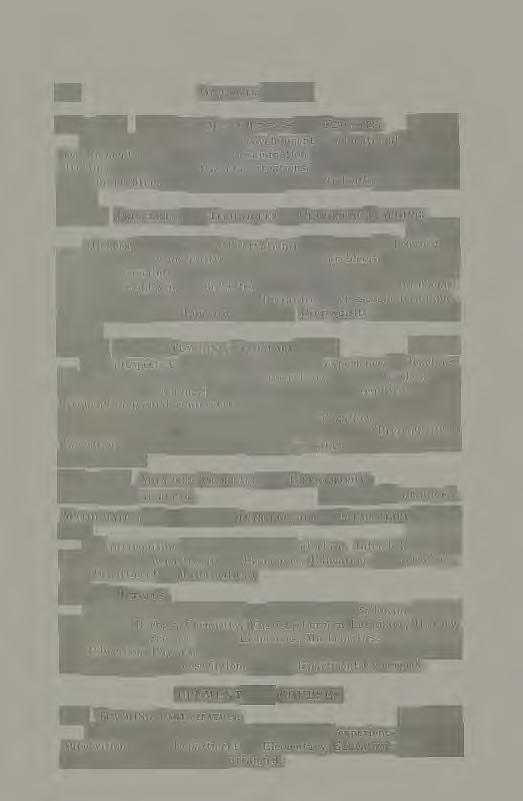
5 minute read
Home Economics
130
OTTERBEIN COLLEGE
307 or 308. TESTS AND MEASUREMENTS FOR TEACHERS. S hours
A survey of the history and development of educational tests and measurements with a careful examination of the methods of constructing tests in actual teaching situations. A feature of this course is the preparation of a testing program in the student's major field of study.
425-426. PRINCIPLES AND TECHNIQUES OF CLASSROOM TEACHING. 4 hours (General Methods with Observation.) This course is designed to give the student familiarity with the various problems of the classroom and acquaint him with the various methods and devices which have been employed or suggested for dealing with these problems. There will be a general survey of literature of classroom technique. Must be taken with Education 431-432. Prerequisite: General Psycology.
431-432. STUDENT TEACHlNG, SECONDARY FIELD. 6 hou1·s
The prospective teacher is given actual experience in teaching in a public high school, under the supervision of critic teachers and the director of training. All student teachers are required to have frequent individual conferences with critic teachers as well as with the director. This course must be taken with Education 425-426. There is a fee of $5.00 a semester hour for this course. Prerequisites: Education 203 and one course in public speaking. Two or more hours each semester.
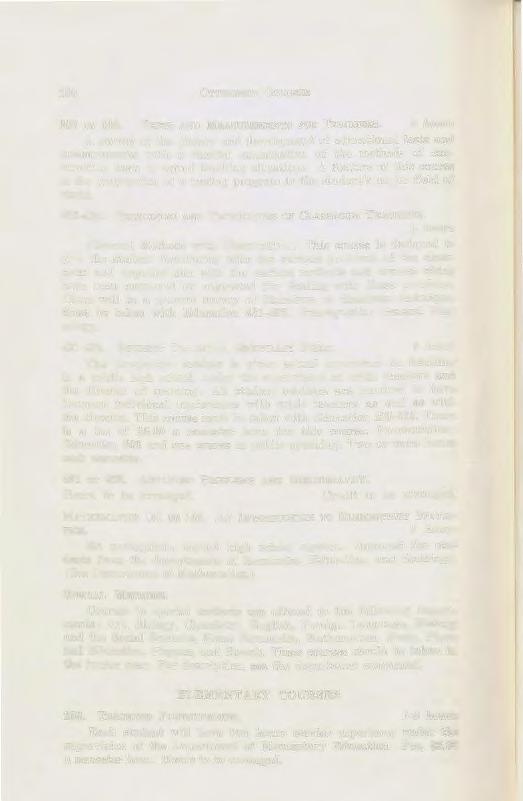
491 or 492. ADVA..'fCED PROBLEMS AND BIBLIOGRAPHY. Hours to be arranged. Credit to be arranged.
MATHEMATICS 131 OR 132. AN INTRODUCTION TO ELEMENTARY STATISTICS. 3 hours
No prerequisite beyond high school algebra. Intended for students from the departments of Economics, Education, and Sociology. (See Department of Mathematics.)
SPECIAL METHODS.
Courses in special methods are offered in the following departments: Art, Biology, Chemistry, English, Foreign Language, History and the Social Sciences, Home Economics, Mathematics, Music, Physical Education, Physics, and Speech. These courses should be taken in the junior year. For description, see the department concerned.
ELEMENTARY COURSES
258. TEACHING PARTICIPATION. 1-2 hours
Each student will have two hours service experience under the supervision of the Department of Elementary Education. Fee, $2.00 a semester hour. Hours to be arranged.
COURSES OF INSTRUCTION 131
The following courses, 351, 352, 353, and 465 form a major sequence in elementary education. This sequence includes three courses in teaching methods and a summary course. The purpose is to develop understanding and attitudes regarding the program of the elementary school that lead to an intelligent development of curriculum material which would most effectively make the school program an integrated experience for the child's whole living. Throughout the entire sequence students hav:e ample opportunity for actual participation in the classroom experiences.
351. METHODS, LANGUAGE ARTS. a hours
This includes language arts, oral and written expression, creative •t· wr1 mg, and the techniques of the teaching of reading.
352. METHODS, SKILLS. • This includes the subJec_ts of . • _arithmetic, S hours spelling, and writing as h t ey become useful tools m an mteg1·ated experience.
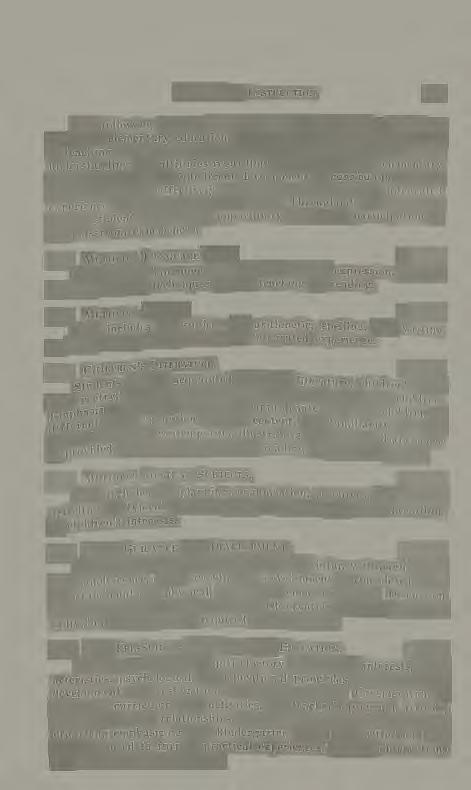
353. CHILDREN'S LITERATUR_E. . s hours
Students will be acqu_amted Wlth folk literature, children's clas. oetry and the various phases of modern prose for ch ·id sics, P ' d I t· f . I ren. EJJlPhasis is place on _se ec 10n o appropriate books for children of different ages, evaluation of boo~ content, and familiarity with the k wor of early and contemporary illustrators and writers . . . Exper· • 1ence is provided m story tellmg and oral readmg of prose and poetry.
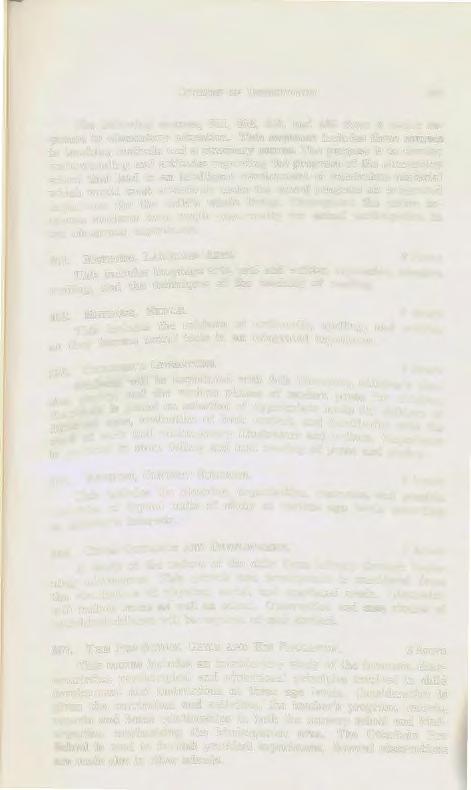
55. METHODS, CONTENT SUBJECTS. s hours 3 This includes the planning, organization, resources, and possible activities of ~ypical units of study at various age levels according to children's interests.
356. CHILD GUIDANCE AND DEVELOPMENT. a hours
A study of the nature of the child from infancy through beginning adolescence. This _growth _and dedvelop~ent is considered from 1 1 the standpoints of phys1ca , soc1a , an emotional needs. Discussion will include home as well as school. Observation and case studies of individual children will be required of each student. 357. TUE PRE-SCHOOL CHILD AND HIS EDUCATION. 2 hours
This course includes an introductory study of the interests characteristics, psychological and educational principles involved i~ child development and instructions at these age levels. Consideration is given the curriculum and activities, the teacher's program, records, reports and home relationships in both the nursery school and kindergarten, emphasizing the kindergarten area. The Otterbein Pre School is used to furnish practical experiences. Several observations are made also in other schools.
132
OTTERBEIN COLLEGE
358. ORGANIZING THE CURRICULUM FOR THE PRIMARY GRADES. £ hours
This course is especially planned for students in Elementary Education who expect to teach in kindergarten, first, second and third grades. It considers: organizing the curriculum; planning units of work; use of teaching aids; observation of primary classes and conferences with resource people; problems of social adjustment of children; and the integration of the child's learning experiences. Pre• requisite: Education 357.
461-462. STUDENT TEACHING, ELEMENTARY FIELD. 6-12 hours
The entire morning is spent in the teaching situation in order to familiarize the student with all the problems of teaching. It is planned that wherever possible approximately 9 weeks of the e.'<perience will be in a rural school and 9 weeks in a town school. Student will concentrate on student teaching during this semester. Fee, $5.00 a semester hour.
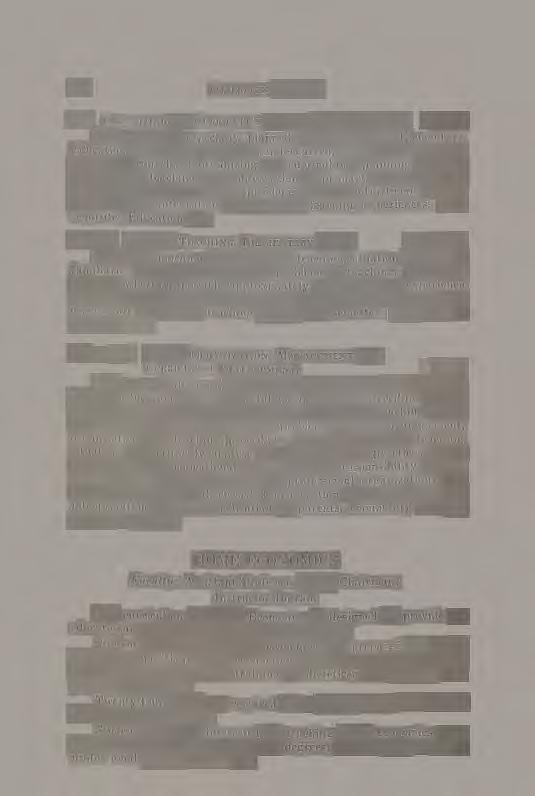
465 or 466. SCHOOL ORGANIZATION, MANAGEMENT AND CURRICULUM DE\'ELOPMENT. s hours
This course is designed to help the student draw out the basic principles of education as they are established from the preceding courses and experiences. It should be taken during the student teaching period as the group will share and discuss problems of school management, organization and teaching procedures that arise in their teaching situations and critically analyze and evaluate these practices in the light o! the best educational values. Teacher responsibility for inservice growth and various types of professional organizations and their purposes will be discussed. Consideration will be given to the interpretation of modern education to parents, community and lay persons in g-Emeral.
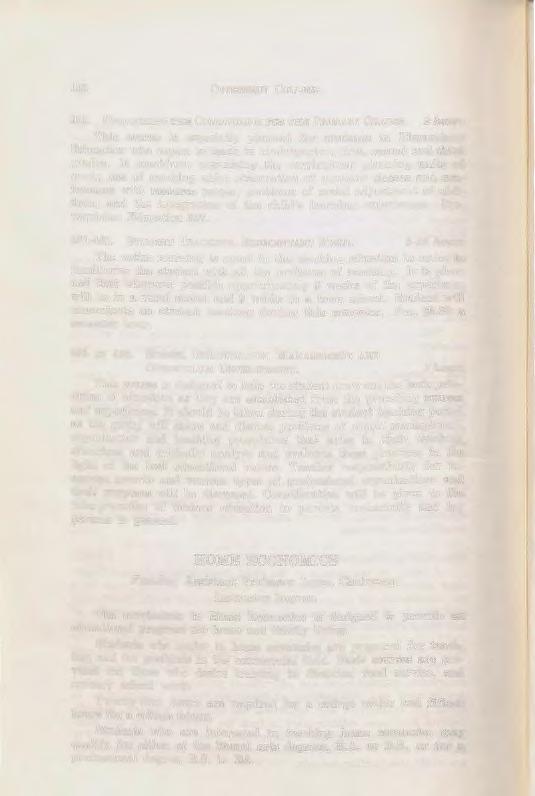
HOME ECONOMICS
Pac11lty: Assistant Professor Joyce, Chairman; Instructor Ingram
The curriculum in Home Economics is designed to provide an educational program for home and family living.
Students who major in home economics are prepared for teaching, and for positions in the commercial field. Basic courses are provided for those who desire training in dietetics, food service, and nursery school work.
Twenty-four hours are 1·equired for a college major and fifteen hours for a college minor.
Students who are interested in teaching home economics may qualify for either of the liberal arts degrees, B.A. or B.S., or for a professional dei.,-ee, D.S. in Ed.










